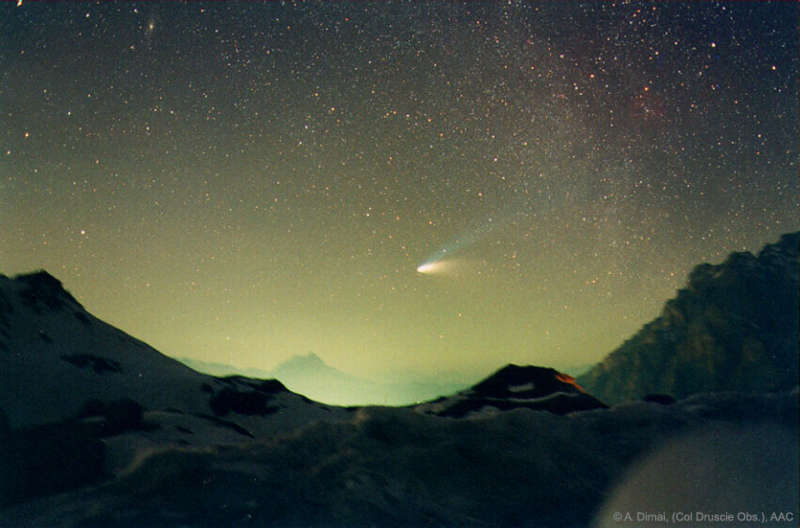
|
Credit & Copyright: A. Dimai, (Col Druscie
Obs.),
AAC
Explanation:
Comet Hale-Bopp,
the Great Comet of 1997,
became much brighter than any surrounding stars.
It was seen even over bright city lights.
Away from city lights, however, it put on quite a
spectacular show.
Here Comet Hale-Bopp was photographed above
Val Parola Pass in the
Dolomite
mountains surrounding
Cortina
d'Ampezzo,
Italy.
Comet Hale-Bopp's
blue ion tail, consisting of
ions from the
comet's nucleus,
is pushed out by the solar wind.
The white
dust tail is composed of larger particles of
dust from the nucleus driven by
the pressure of sunlight, that orbit behind the
comet.
Comet Hale-Bopp (C/1995 O1) remained
visible to the unaided eye for 18 months -- longer than any other comet in recorded
history.
This year marks the
20th anniversary of Comet Hale-Bopp's last trip to the inner Solar System.
The large comet is next expected to return around the
year 4385.
|
January February March April May June July August September October November December |
| ||||||||||||||||||||||||||||||||||||||||||||||||
NASA Web Site Statements, Warnings, and Disclaimers
NASA Official: Jay Norris. Specific rights apply.
A service of: LHEA at NASA / GSFC
& Michigan Tech. U.
Based on Astronomy Picture
Of the Day
Publications with keywords: Comet Hale-Bopp
Publications with words: Comet Hale-Bopp
See also:
